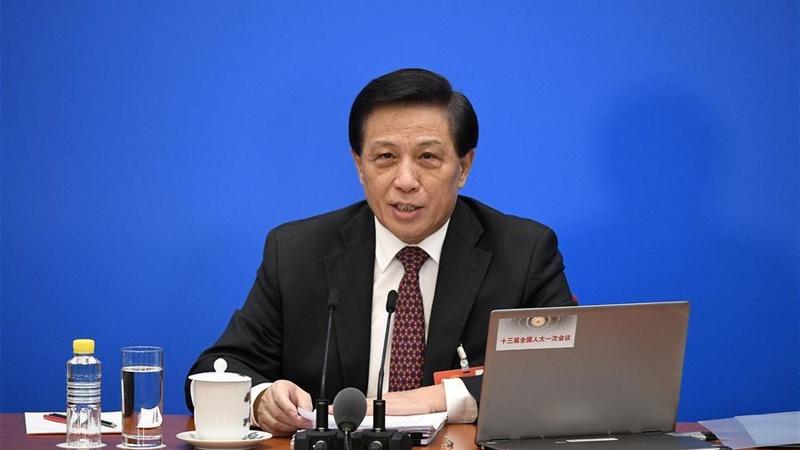
Financial Time reported that a senior Chinese diplomat said Beijing wanted to avoid a trade war with the US and sought to present China as a defender of the global trading system, just a day after Donald Trump threatened Europe with additional sanctions beyond last week's punitive taxes on imported steel and aluminium. "There are more common interests [between China and the US] than differences so co-operation is the only option for both countries," said Zhang Yesui, vice-foreign minister, on Sunday ahead of the annual session of China's rubber-stamp parliament. "China does not want a trade war with the US." "Through its development, China has created many opportunities for the global economy and made a great contribution to international trade," added Mr Zhang, a former ambassador to the US. Rising trade friction with the US will be one of the biggest talking points at the National People's Congress, which opens on Monday with Premier Li Keqiang's annual "work report" and runs until March 20. Last week President Xi Jinping dispatched Liu He, his top economic adviser, to Washington in an effort to head off a bilateral trade war. While Mr Trump announced 25 and 10 per cent tariffs on imported steel and aluminium on the same day that Mr Liu met with senior administration officials, China's reaction was muted.
The New York Times reports that for the first time since the end of the Vietnam War, a United States aircraft carrier is scheduled to make a port call in Vietnam on Monday, signaling how China's rise is bringing together former foes in a significant shift in the region's geopolitical landscape. The vessel, the Carl Vinson, will anchor off Danang, the central Vietnam port city that served as a major staging post for the American war effort in the country. "It's a pretty big and historic step, since a carrier has not been here for 40 years," said Rear Adm. John V. Fuller, the commander of the Carl Vinson strike group, whose father served in Vietnam. "We hope to continue the same issue that we've always had," he said, "and that's to promote security, stability and prosperity in the region." The arrival of the Carl Vinson strike group's 5,500 sailors will mark the first time such a large contingent of American military personnel has landed on Vietnamese soil since the last of the United States troops withdrew in 1975. "Hanoi's agreement to the aircraft carrier visit demonstrates Vietnam's anxiety about what China will do next in the South China Sea," said Murray Hiebert, senior associate of the Southeast Asia Program at the Center for Strategic and International Studies. "The U.S. is virtually the last man standing to which Hanoi can look for support in the South China Sea dispute."
- 2018-03-02 China criticizes US trade report but silent on tariff hikes
- 2018-03-01 Beijing makes it easier for Taiwanese to work and study in China, and Taipei is freaking out over it
- 2018-02-28 China expresses 'strong dissatisfaction' with US duties on Chinese aluminum foil
- 2018-02-27 China's new economic guru is trying to stop a trade war
- 2018-02-26 The 'Quad' Is Not A Rival To China's Belt And Road Initiative -- It's A Precursor
- 2018-02-25 The US risks making a strategic blunder over China
- 2018-02-23 China's big conglomerates are no longer buying up the world
- 2018-02-22 Top US Treasury official slams China's 'non-market behavior'
- 2018-02-21 A massive US farming industry fears China trade trouble
- 2018-02-20 China would not be the only country hurt by US steel tariffs
- Forbes Trump Threatens Tax on Car Imports as China Vows to Respond to a Trade War
- The Washington Post China says defense budget to rise slightly to $173 billion in 2018
- Bloomberg Chinese Investors Bet on Latin America for Next Tech Gold Rush
- AXIOS.com Chinese official on Trump's tariffs: "We will not sit idly by"
- qz.com China is recruiting a new wave of astronauts from its civilians
- The Guardian Trump aides defend tariffs move as Europe and China decry 'trade war'
- The Hill Manchin echoes White House in blaming China for new Trump tariffs
- Reuters China says lifting term limits is about protecting authority of party
- CNBC China says it does not want a trade war with US
- The Washington Post Unlimited Xi presidency looms over China political gathering
- Financial Times China looks to avoid US trade war as Trump steps up rhetoric
- Wall Street Journal China, US Officials Will Reconvene Talks on Trade Disputes
- Reuters China says its 'moderate' defense spending rises are no threat
- Reuters Vietnam seeks to pacify China as landmark US carrier visit signals warming ties
- www.bbc.co.uk China's 'two sessions': Economics, environment and Xi's power
- Bloomberg Is China Destined to Dominate Tech?
- Forbes Modi Is Getting Ready To Stop China, As The Indian Economy Booms
- Forbes Why It Hurts Less Now As China Punishes South Korea With Tourism Cuts
- New York Times Europe Once Saw Xi Jinping as a Hedge Against Trump. Not Anymore.
- Financial Times Early signs of normalisation in global growth
- Fox News An attack on North Korea could start a US-China war -- Don't do it
- The Hill US nuclear posturing has adversaries gearing up, not standing down
